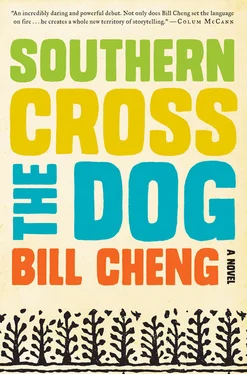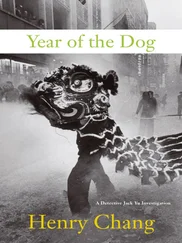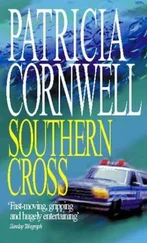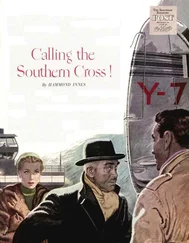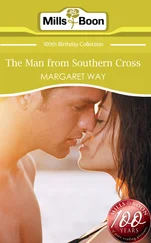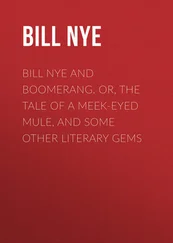They sat beside the fire. The snow had eased and above, a gray plain of sky smothered the dusk. The taste of meat was still in their mouths, and their clothes and skin and hair were perfumed with smoke. A western wind carried off their scents in a breath, toward the dark band above the horizon. He wondered what the smell of meat would call forward from those swamps.
Then, as if she’d heard his thought, Frankie turned toward the tupelos and stared hard into the dark. She narrowed her eyes, clenched her jaws.
Between the trees, a desperate form materialized. His clothes were in tatters. A long beard hung from his ghoulish face, black and matted with mud. But Robert could not mistake the knife that dangled from his belt.

ROAN STAGGERED TOWARD THE FIRE. He paid them no mind, falling to his knees and pawing the hot embers, peeling off the strips of ashen meat that had melted on the stones. He ate greedily, shivering from the heat, his eyes shut and rimmed with tears.
Roan, Frankie said. Her hand hovered above his stooped back.
What happen’ a you?
Roan swallowed hard and sucked at the small keylike bones.
Where be Bossjohn?
Dead, he muttered.
Frankie gasped.
How y’mean dead?
Roan rose and grabbed Frankie’s wrist and forced her toward him. He leaned his face into hers, their noses almost touching. He sniffed sharply. A look of confusion passed across his face as she backed away. Then he looked at Robert and grinned.
Tuk tuk tuk. You been much busy, muskie, oui? He cast his gaze around the camp. And you, ma’ cousin?
Roan let her go, and Frankie looked away, her cheeks coloring.
Come, she said. Let’s get we inside.
Roan sucked the grease from his thumb and nodded. They stood and headed into the dugout.
He followed Frankie into the other room while Robert stood by the door. He looked back out. The snow had turned to a heavy rain. Lightning cracked and crows took from their perches, filling the heavens with a sudden screaming night. He looked up and watched them crash above him. The horizon sparked and groaned.
Roan came out in fresh clothes. He faced Robert with a grin and sat himself down at the table. Frankie came out after him, shaken. She looked at Robert. Shook her head.
Rowbear, Roan rolled the name in his mouth. You like’n here, oui? Not every day big black muskie get to et’ on white meat, non?
Roan rose. He was light and small, and he pinioned Frankie’s arm behind her back. Robert stepped forward and Roan slipped his knife free.
Nuh nuh nuh. Sit you self down.
Robert looked to Frankie. Her face was white with shock. Robert put up his hands and sat down.
I’s gon’ put here house in order, y’hear?
Roan threw her down, and she smacked her head against the table ledge. Then he turned toward Robert. He took a quick step before Robert could rise; he plunged his foot into his chest. Robert fell backward through the door. All at once he was outside, the icy rain against his skin.
Roan kicked again, and Robert gasped, trying to suck down the lost wind. There was mud in his eyes and mouth and nostrils. He heard the door clap shut behind them. The skin on his back burned from the fall. He heard a choking noise gurgle from his own throat.
Roan was above him now. Robert could feel his thin lithe frame shielding him from the rain.
He tried to get up. A sky of white exploded against his temple.
HOW MUCH TIME HAD PASSED? He could not be certain. He forced himself to his knees. He found the dugout wall before his insides lurched into his throat. His mouth filled with acid and he emptied it against the wall. He spit and wiped his lips. His head was burning.
He felt weak. The ground was soft, and it was an effort to lift his legs. He fell forward and his arms drove into the sucking earth.
This is it, he thought.
He let himself onto his belly. The mud was cool, soothing.
This is it.
He rested his cheek against the ground. He shut his eyes. If he could get his heart to quiet. His breath to slow. His lungs were raw and it hurt to breathe. He waited. For what, he wasn’t sure. A light. A voice. He strained his ear upward, above the smashing rain, to the upper band of sky. But there was nothing. The universe seemed to pitch forward and fly into the void. He lifted his chin and opened his eyes. The night flashed and thundered.
At first he thought it was a trick of the light, but the sky flashed again and there it was. It sat on its haunches, its coat sabled with rain, the fur at its scruff raised to sharps. It gazed solemnly into his eyes. He felt a grief then, a rush of anguish.
Robert balanced himself on his knees and hoisted himself up.
He staggered into the dugout. In the other room, he heard them, Roan grunting and Frankie pleading. He walked as silently as he could. In the dimness of the room, it took him a moment to understand what he was seeing — Roan on top of Frankie, struggling at her clothes. His trousers were worked down to his ankles, along with his belt, the knife.
Robert moved slowly. He bent, took the cold weight in his hand.
Robert grabbed a fistful of hair. He forced it back and dragged a line across the neck. There was spray against the walls, a wet sick noise in his throat. Roan kicked and shook and finally went limp.
Robert dropped the steel. He propped himself against the wall, breathing hard. Then he collapsed.

THE NEXT MORNING, FRANKIE DRAGGED the body out through the soft mud, fanning a Roan-shaped runnel out into the deep swamp. She buried him under clay and dirt and left the grave with no marker. When she returned to the dugout, Robert was still asleep. For the next few days, he would not speak and did not eat except for a little bread and water. He barely acknowledged her. At night, she’d sleep beside him in a crescent, nestling against his shivering form.
Then one night, he turned toward her. He cupped her hands in his and kissed her knuckles, softly.
I’m sorry, he said, though for what he never told her.
She woke the next morning to find that he’d left in the night, taking with him Roan’s knife, a spare rifle, six rounds of ball, ten feet of rope, a rucksack, Roan’s old coat, a pair of boots, a pound of raw oats, a half pound of jerky, a canteen, a stocking of salt, and three vials of dog urine. She felt something hidden underneath her roll. She took it out, held it up to the light. A small flannel pouch.
He wandered out of the swamp, half dead and all the way alive — every nerve singing. The nearest town sat under a clear blue sky, and he crossed the span of short grass to the borders. The streets were bitter bright and he felt like a stray among the houses. He was foul smelling and his coat was shredded to rags. A man had bumped into him and he could have murdered him, could have put his fingers through his soft neck. He walked for hours, the cold air on him, his memories a film with no lamp — just darkness and movement. He heard music and saw that he’d walked clear across town. He found himself before an old clapboard building with no signs, just rows of windows and music coming from the basement.
He went inside where it was warm. A colored woman sat behind a teak counter. She looked at him carefully. The music grew louder, and they both turned toward the door behind her from which it flowed. He could hear singing.
She opened a large leather-bound register.
You have to sign before you go in.
She held out the pen.
It’s okay, she said.
He took it and drew an X and it seemed to satisfy her.
Читать дальше
